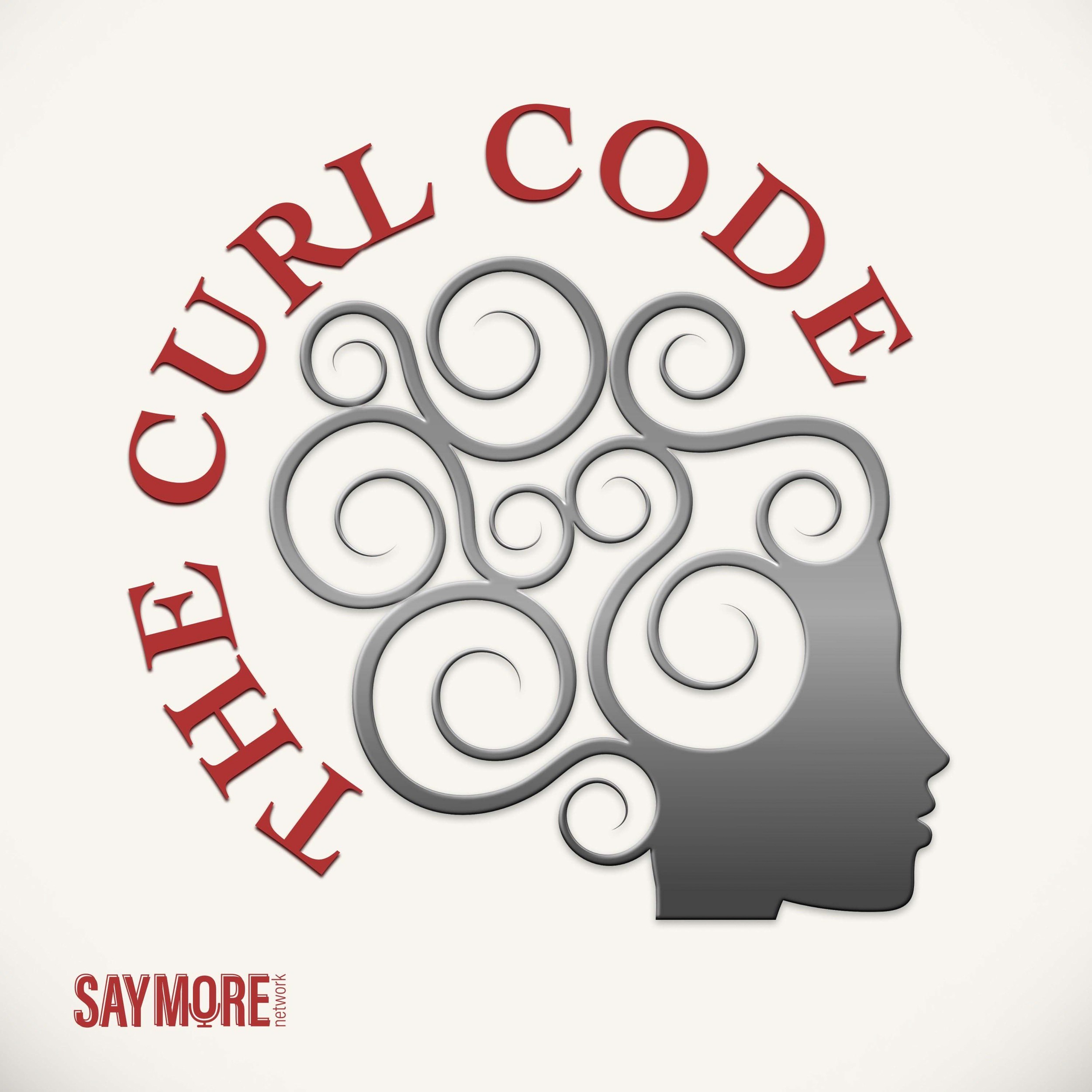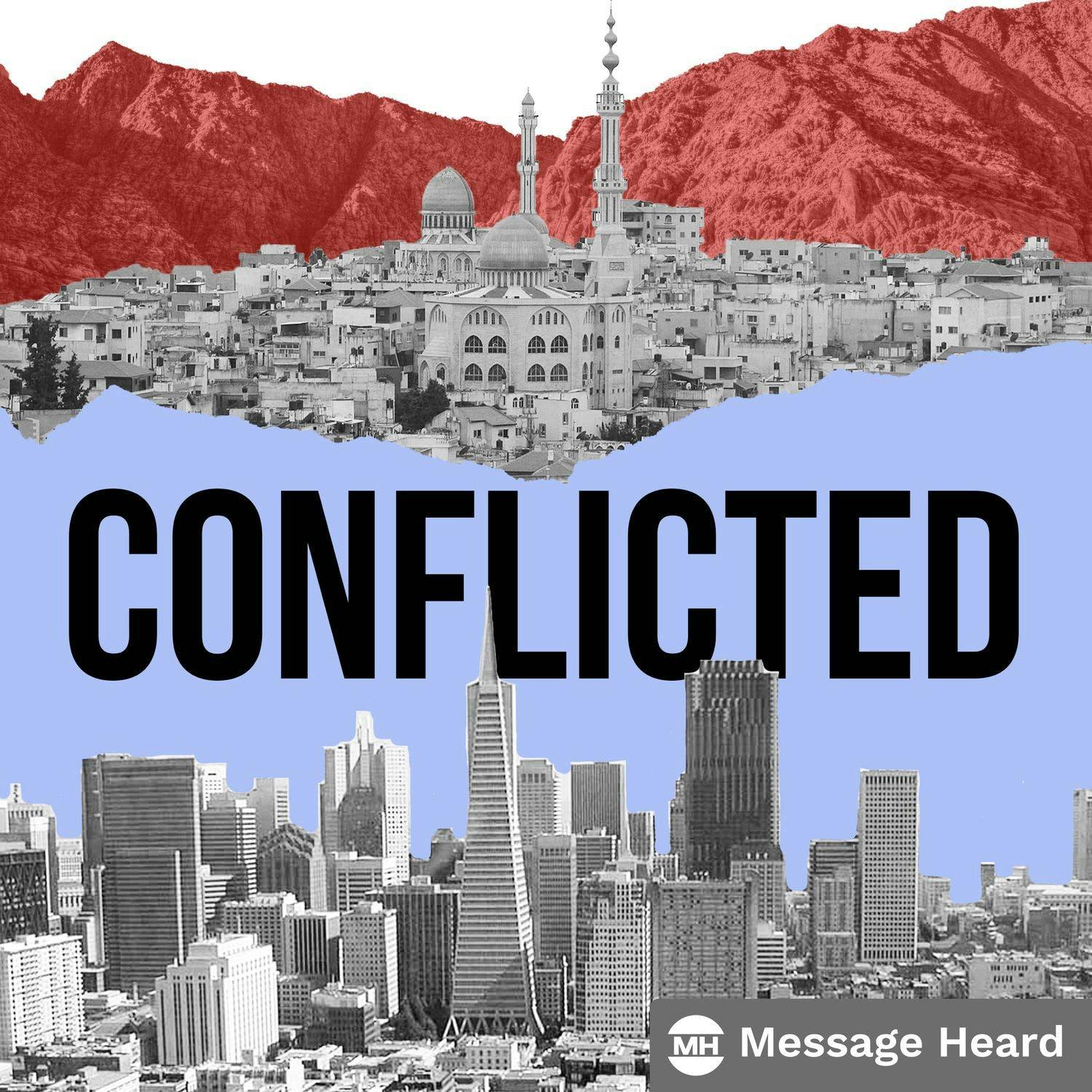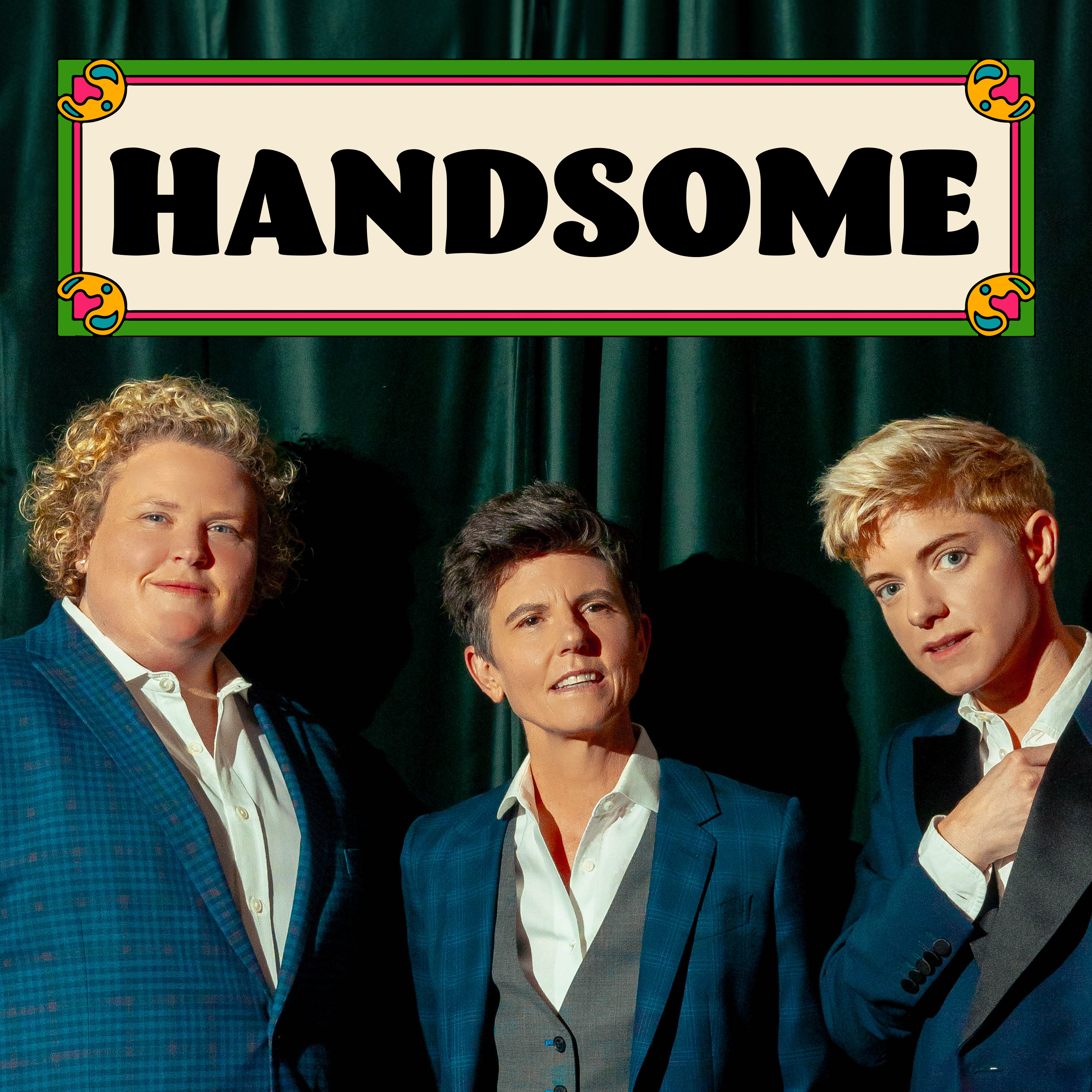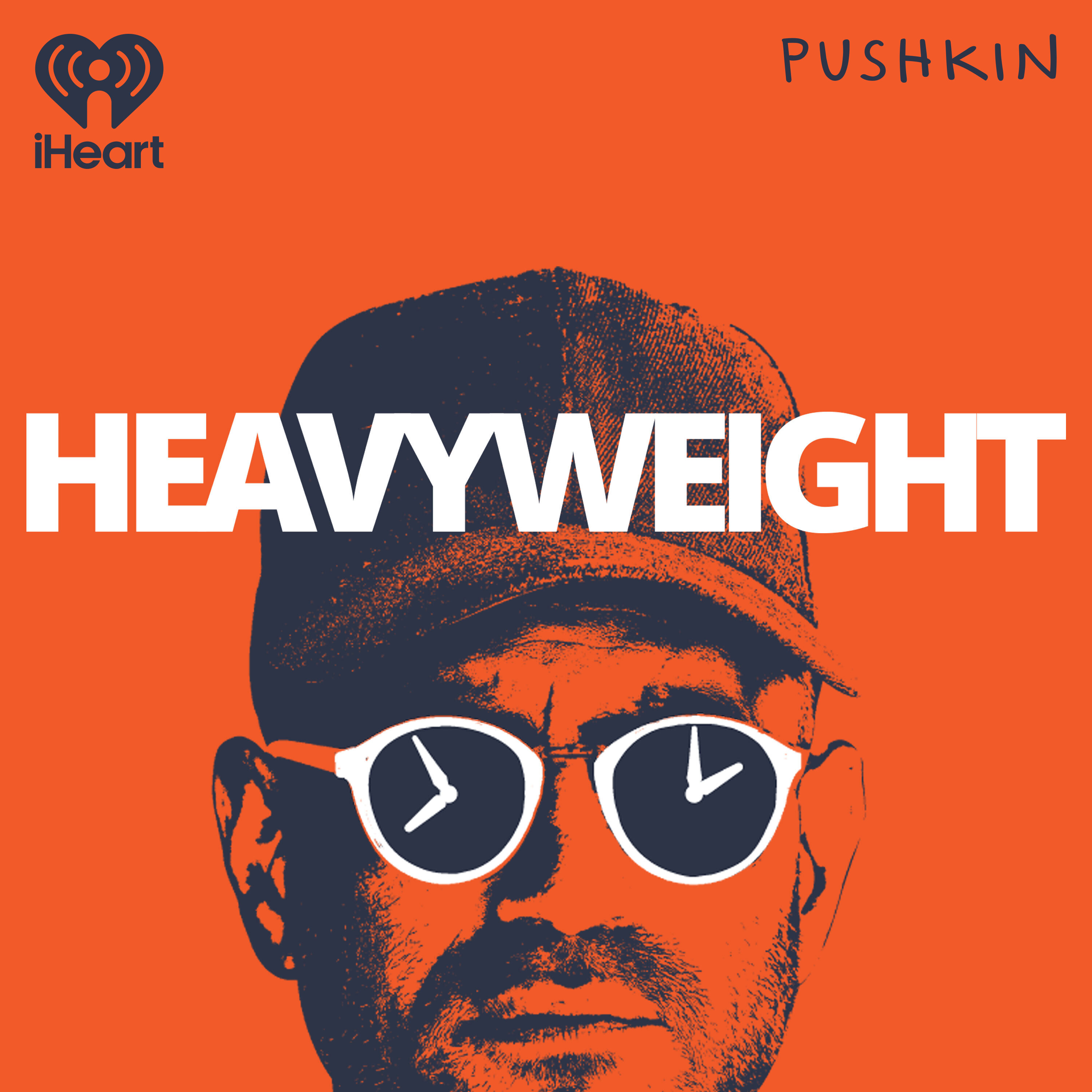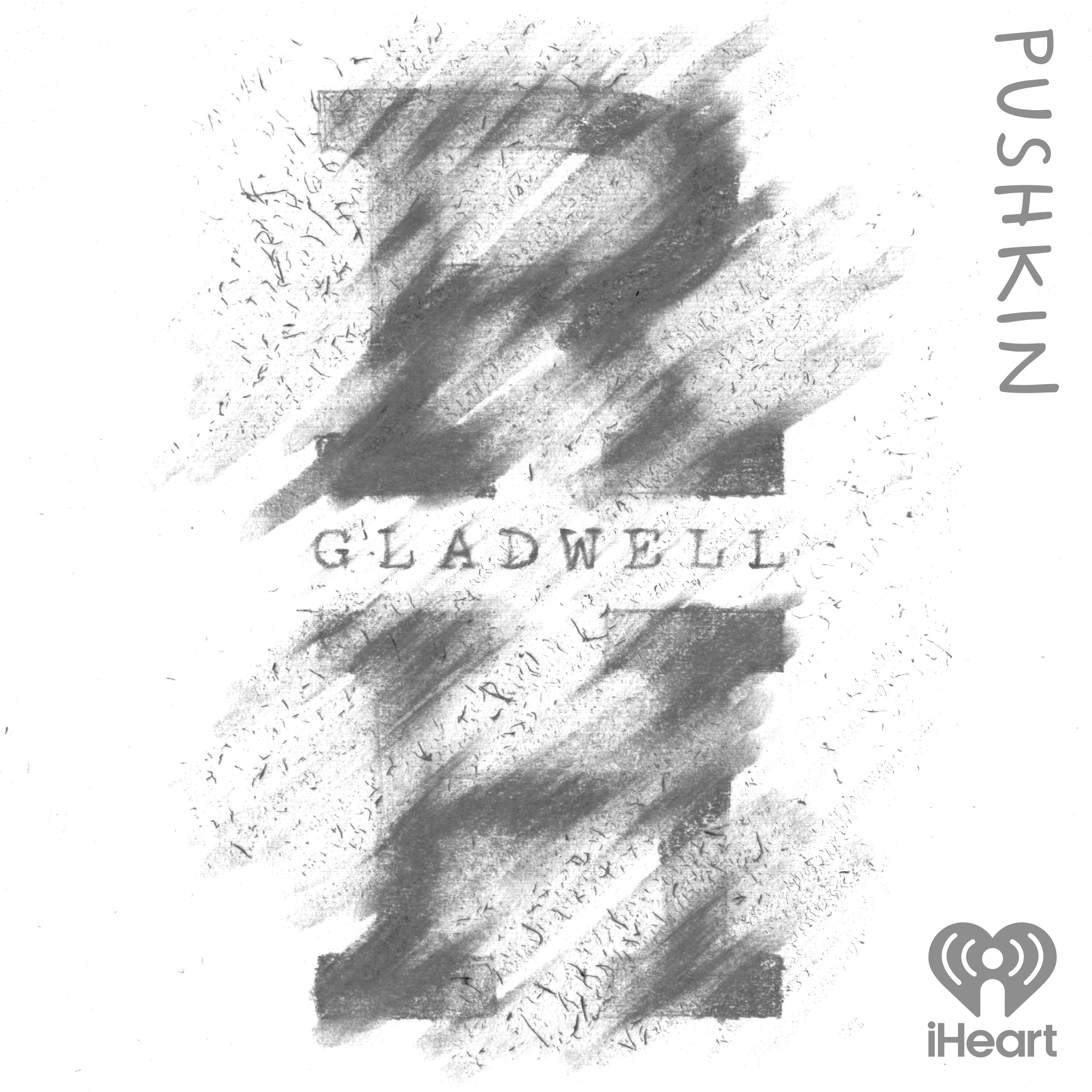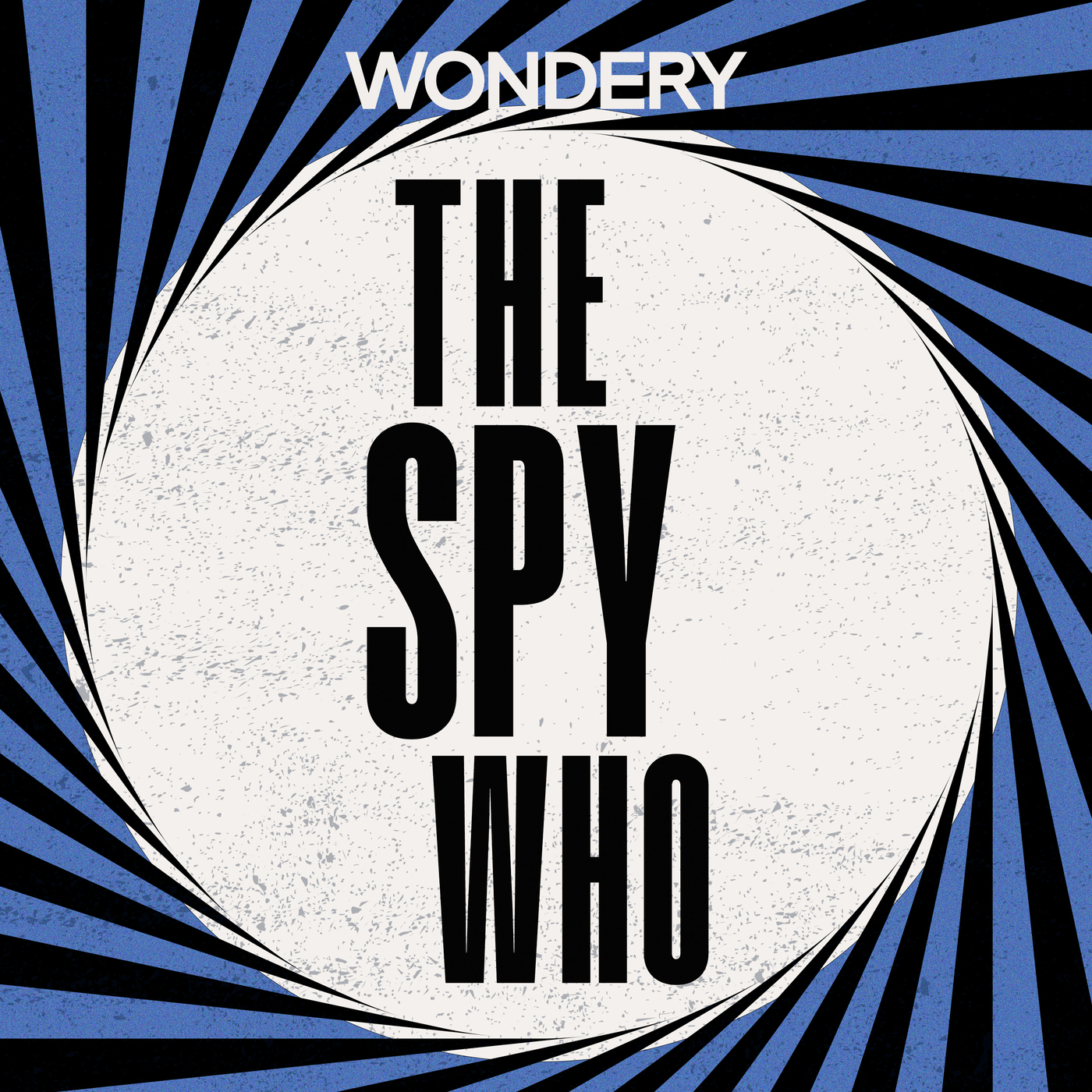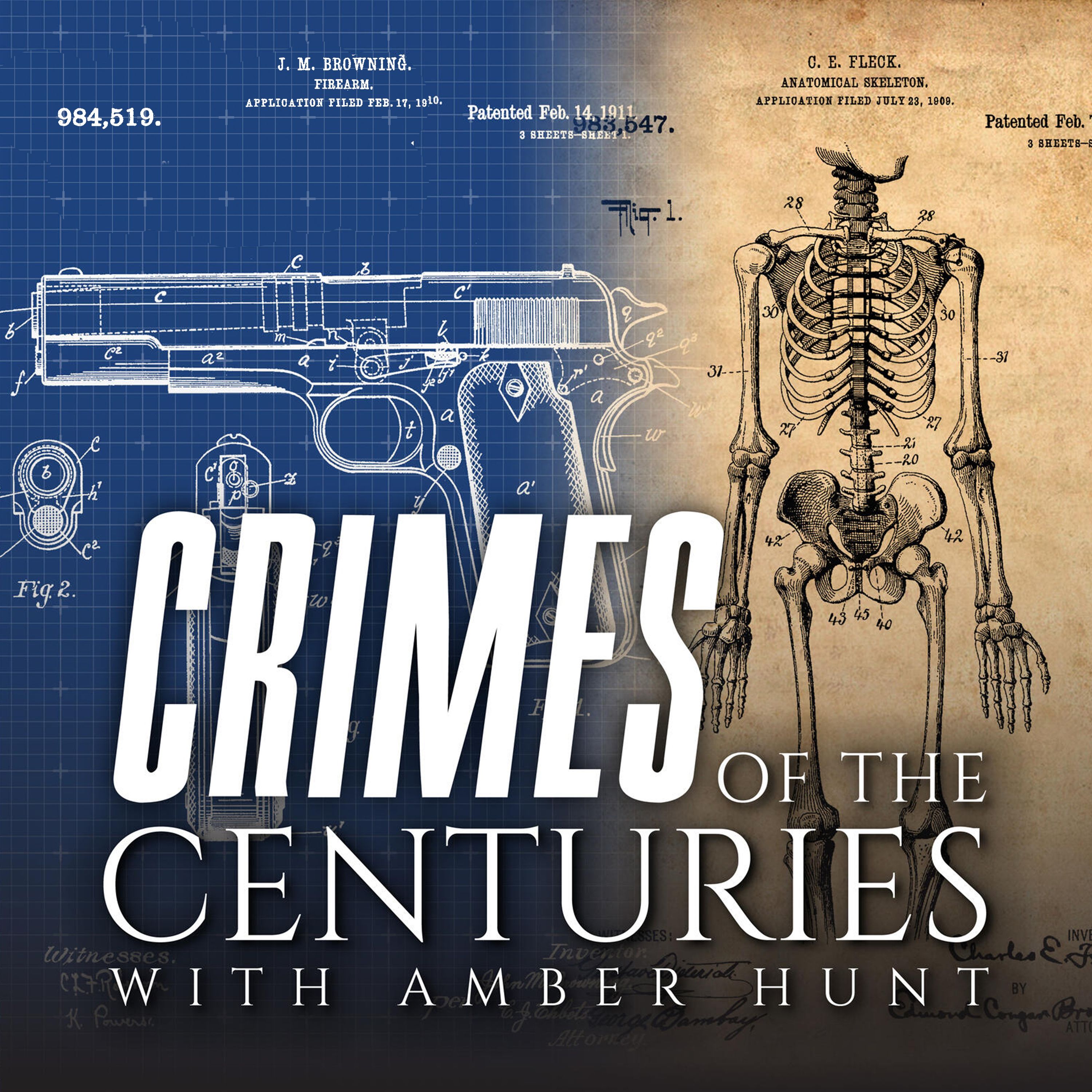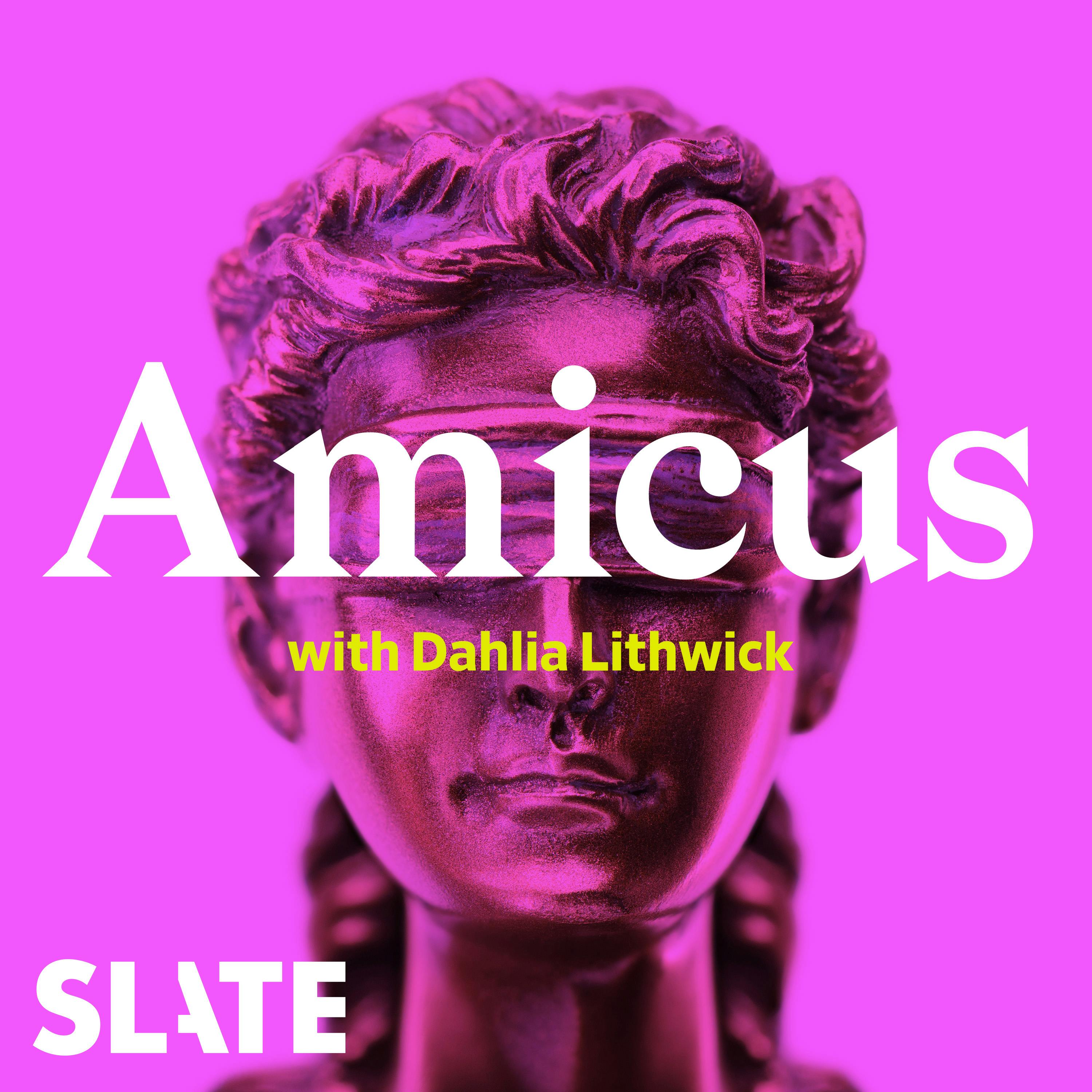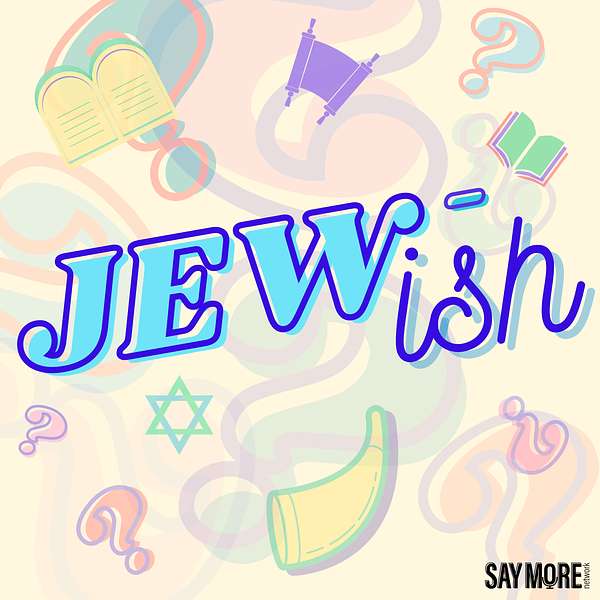
Jew-ish
What is being "Jewish"? What are Jews? What do Jews believe? What do Jews do? What's happening in those mysterious synagogues with all that weird language (it's Hebrew)?
Jew curious?
The thing about being Jewish is, you can't tell us apart by looking (well, not always), we often look the same, dress the same, work and play and eat right alongside our non-Jewish counterparts, and yet, as a teeny tiny minority--only 0.2% of the global population, and 2-3% of the U.S. population--plenty of people have probably never met a Jewish person, or if they did, they didn't even know it.
For as much as we share (and it's probably way more than you think), somehow, moving through the world as a Jew really is different. Everything looks different through a Jewish lens, even for those who aren't particularly religious, the ones who describe themselves as "Jew-ish."
But honestly, none of this is really that mysterious. And, if you're curious or confused, you can always just ask the internet--or, now you can also come here and check in with your new Jewish friend.
So, if you have questions about being Jewish, we're here to introduce, explain, ask alongside, and generally demystify Judaism for Members of the Tribe (Jews) and goyim (non-Jews) alike, exploring and showcasing the infinite ways there are to be Jewish.
Jew-ish
A Southern girl walks into a shul...
Nancy grew up in Savannah, Georgia, and like most people, was active in the church. But after having kids, she moved into the Jewish neighborhood of Savannah, wanting what she saw there for her family. That started her down a path of questioning and curiosity that ultimately led her to convert. We talk about her journey, what she studied to become a certified Jew, and how her before-and-after lives compare. This episode kicks off an informal mini-series exploring conversion to Judaism. We’ll hear a few personal stories, and a rabbinical perspective. This could be an endless series, because of course, every experience is unique. As many converts as there are in the world, that’s how many reasons and paths there are to conversion.
Synagogue: the Jewish house of worship and learning. Also called a "shul" or temple.
JEA: The Jewish Educational Alliance, is Savannah’s version of a JCC (Jewish Community Center). JCCs originated in Baltimore in 1854 and are community and event centers, often with gyms and child care, open to membership from anyone.
Proselytize: to recruit or attempt to convert someone to a faith.
Hanukkah: The Festival of Lights, recognizable to many by the 9-branched menorah, takes place anywhere from October to December, on the 25 of the Jewish month of Kislev (Judaism uses a lunar calendar). Not actually a religious holiday, it commemorates the victory of the Maccabee (meaning: hammer) tribe over the Seleucid king Antiochus IV Epiphanes.
Zaydie: Yiddish for grandpa, also spelled “zaydeh” or “zaydee.”
Rosh Hashanah and Yom Kippur: known as the High Holy Days, they are separated by ten days, collectively known as The Days of Awe. Rosh Hashanah means “head of the year,” but is not the calendar new year; it’s the anniversary of Creation. Tradition says that on Rosh Hashanah the Book of Life is opened, and on Yom Kippur (the Day of Atonement) it is sealed. During the Days of Awe, you’re meant to apologize for, own up to, and forgive hurtful behavior from the previous year to be sealed in the Book of Life for a good year to come.
Mickve: a ritual bath, required in conversion, but also used in many rituals to signify cleansing, purification and a new start. Also spelled "mikveh," it is generally considered to be the origin of baptism.
Beit Din: meaning “house of judgment,” it is a rabbinic court, and in some historical periods and communities, was also the civil court. In conversion, it’s a panel representing the community the convert wishes to join.
A note about Savannah’s Jewish community: In 1733, a small group of mostly Portuguese Jews arrived in the 5-month-old colony of Georgia. In 1790, Georgia, now a state, granted a charter forming Congregation Mickve Israel, the third in the entire U.S. Historical records mentioning the congregation include an exchange with President George Washington after his election. The congregation still gathers in the neo-Gothic sanctuary off Monterey Square, consecrated on April 11, 1878. Congregation Shearith Israel in New York was founded in 1654, and the first Jews in
If you said I went and got my two books I did, I got my two books because I want to be prepared for class. And so I got all my two books before class started.
Hannah Gaber:Welcome to Jew-ish. Today, we're gonna hear Nancy's story. She's a friend of mine from Savannah, where I moved when I was 17 years old. I had never been to the South, but I had read "Midnight in the Garden of Good and Evil," so definitely knew what I was doing. Savannah was full of new experiences, including people trying to guess my ethnicity a lot. After a few wrong guesses, I would usually have mercy and tell people I was Jewish. And so often their response was, "Oh, I've never met a Jewish person before." I was kind of bratty about it at first. And I would say things like, "Are you sure? You can't always tell by looking you know, we don't actually have horns." Teenagers are the worst. But in all honesty, especially if you've never met a Jewish person, asking questions is a good thing. Being inquisitive is always better than just sitting in your assumptions or living in the dark. And that's the core of Nancy's character. She'll tell her story better than I ever could, but her journey from practicing Christian in the South to Jewish person, thank God, living in the DC area with me, filled me with questions about how those lived experiences compared. What was her before and after life, like? I'm lucky enough to count Nancy, among my closest friends, we really are each other's chosen family. And we've known each other for about 15 years. It guess in some small way. I'm a minor character in her very interesting story, which is all her own. Like any lived experience, Nancy story is totally unique. And I'm really, really grateful to her and think she's really generous to share it with us. Where did you first go to synagogue? Was it when I took you here?
Nancy:It's when you took me here? And that is actually the I think that's the thing that had me question you.
Hannah Gaber:I didn't really realize I guess how like, different it is to live in the world through like a Jewish perspective. Until you and I really started talking about it in Savannah. And you were telling me your observations. So what do you remember? I'm just curious, like, I know that you didn't just get curious because of our friendship, I know that your time like in Habersham woods, was?
Nancy:That's where it started. Yeah. So I moved into Habersham woods, Kensington Park, which is, of course, you know, a block away from a synagogue and a block away from the JEA. And that's where the majority of the Jewish community is, they can walk. And I just remember, I wanted to live in a community because I always saw people walking around. I always saw people playing outside. I always said just that like, traditional neighborhood.
Hannah Gaber:Yeah.
Nancy:Where you saw people out. I have small kids. That's what I wanted them to grow up around. Then I moved in there and I met my neighbor. And they didn't even know who I was. And they're, they're like, if you need anything, if you have any questions. We're here. Today. Yeah,
Hannah Gaber:come over and knock was it like that, like you were new in the neighborhood? They were like,
Nancy:Hi, I'm not that neighbor. But whenever they would see me, they would intentionally stop asking me how I was asking me how my children were, you know, they made time just even going out to the cars. It was different than any other interaction I had.
Hannah Gaber:So like, did you know that your neighbors were mostly Jewish? Or did you just sort of see the behavior first, and then you were like, oh, I want to be around that. And then you discovered that people were mostly Jewish?
Nancy:Well, I knew that they were Jewish, because I knew that that was the neighborhood, I worked with a client that was in that neighborhood. And I knew that they were Jewish, and all their neighbors were Jewish. And that's kind of where I learned that that was the Jewish community. And then when I would drive through there, going to his house, going to my brother's house, who also lived in the neighborhood, I just saw the things that I saw and just knew that's where I wanted to be.
Hannah Gaber:Tell me a little bit about where you were born and raised, like, I know that you're like, from that area, but like, helped me understand why that was so different, right? Because like to me, that, I remember you telling me that and I was like, Yeah, people are nice. And you were like, but are they? Sometimes....Yeah, how was it different from how you grew up?
Nancy:So I grew up on they called the south side of Savannah. There are just normal houses, the suburbs, and you would see that it was a normal neighborhood, but I never saw a bunch of people out.
Hannah Gaber:The neighbors would just like give you the nod and go in the house. And that's what I thought was normal. And so was like we're here, but we're in our own little world. There was no sense of community No. Which is so funny, because I think that's also a stereotype that people have about the South right is that I or maybe it's more of a mythology that it tells about itself, where it's like, oh, no, this is the place where people are really warm and friendly and like people are. There is a strong sense of community, which I mean, I guess I had that experience when I was living in Savannah, but we were young kids. And like, at that age, you just talked to everybody.
Nancy:Exactly. But I think it's also situational. I think the friendly, neighborly warm fuzzy is something that's presented during certain situations. It's not necessarily a genuine to the core behavior,
Hannah Gaber:right? So it's not just like a state of being every single day.
Nancy:No.
Hannah Gaber:Well, and what's interesting too, is that that's an Orthodox community. So and that's why they need to be walking distance from the synagogue and like, I'm, my family's reform. And I was teaching Sunday school at Mikve Israel, very old Jewish community, if I recall correctly, third oldest after New York and New Orleans.
Nancy:Oh, wow.
Hannah Gaber:But Charleston has a super old Jewish community as well, because I mean, of course, Jews, if they see a ship leaving a place where they are not wanted, like Spain, or Portugal, they're like, I'm gonna get on that ship.
Nancy:I'm out!
Hannah Gaber:Maybe it'll be better. I don't know. The lore goes, essentially, that King George got wind that there were Jews on their way. And sent a message to Oglethorpe saying, don't let the Jews in. But the Jews had gotten there first. And Oglethorpe was like tough shit. They have doctors.
Nancy:They're already here.
Hannah Gaber:And they're already here. And I'm good. They're gonna be a part of this community. We need them. So that's the sort of legend that I grew up with there. You were here in Virginia. When I moved back to the states in 2018, I came to DC. And you are already here in Stafford down the road. Right?
Nancy:I got yeah, down the road two hours.
Hannah Gaber:With traffic, yes.
Nancy:I just I remember calling you. And I got here in September of 18. And I called you at the end of October. And I was like, I think I need to move back to Savannah. You're like, don't? I'll be there next week. And I was like, Okay, I'll say I remember
Hannah Gaber:that was all don't go. I want I'm on my way. And for me, I remember, I don't remember how it came up. Maybe you do. When you were asking about? Well I know it was when you were getting separated. So it was like you were getting separated. And I think you just wanted something I can't remember if you were like searching for a sense of you just want a community or you wanted to be able to take the kids somewhere. I can't remember. Do you remember what it was that spurred the conversation?
Nancy:I do. So I grew up in Savannah. And I could probably go out to any restaurant and see somebody I know or somebody that that I know, you know, somewhere connected to. And then I came up here I was, you know, I had a five year old, a three year old and a three month old and I found myself by myself. And so you know, where I grew up, the first thing to do was to go to church, to meet people, and I didn't necessarily want to go to a Christian church because of just a multitude of things. So what I've always had an interaction with is I met another mom or I met another I'm a former Army spouse, so another spouse, and it was hey, how are you? Why don't you come to church with me? That's like a, you know, hey, let's go grab coffee. And I mean, sometimes I would go just to kind of make friends. But I remember specifically, I would see people out walking, and after and throughout the week. And I called you and I said why don't they ask me to go to church with them? Oh, and then you explain to me, yeah, why they don't that we don't proselytize? That's not what we do. Right? Yeah. And I was like, Oh, I like that. Because it's just, I want to do something else besides, go to church, I want to go have coffee, or go to dinner or go to a movie. And I was almost like, do they not want me to go? Can I not go? You know?
Hannah Gaber:We're having that conversation. And that's I think a lot of the thing is like, if I'm not being invited, am I allowed? Right? And I think I remember I don't know, timeline wise when that was, but I do remember distinctly having that conversation of like, you're always welcome. Everybody's welcome. You can always go.
Nancy:So that was 2016. And so I think that's when I asked you, I said, Hey, can I go at the main reason why I didn't want to go to church because I just remember, in the south, where I grew up, a woman walking through the door with three small kids divorced. Like, you just can feel the judgment and shame. And it's not really something I wanted to do or put my kids in and so that's when I asked you if I could go and then you took me and my kids up to the Hanukkah, the first night of Hanukkah. And we went. And I just remember, like, I was a nervous wreck. So I was like, Hannah, what if my wife cries? Or, you know, what if the kids are being crazy, like I have a, you know, a five year old, rambunctious boy, and then, you know, my daughter asked a million 100 questions, and I love it. But I was like, we're going to this strange place. I don't want these people to judge me and, or, you know, have any of those. And you're like, I have no idea what you're talking about. And I was like, but you don't understand. And you're like, No, that's not a thing. And I'm like, Are you sure? Because I think you're just trying to make me feel better. And so we went, and I remember walking in and it was the, the synagogue in DC. And it was huge. And there were all these people. And I was just like, I don't know if I'm gonna be able to deal with this. And I went in, and a complete stranger saw me with a baby. And was like, here, you sit down. I'll take your other two kids. And then I was like, what do you do with my
Hannah Gaber:They're gonna give them sugar and let them run. kids?
Nancy:Yeah, exactly. So um, you know, they these people that don't even know they didn't know who I was. They don't even think they knew who you were. So it
Hannah Gaber:No, I was new too, I'm not a member of the congregation.
Nancy:Yeah. And so we're just these strange people. And
Hannah Gaber:We're like, we're just here for the cookies. Yeah, they were like, perfect.
Nancy:And so I was like, okay, you know, maybe it's because it's Hanukkah, and it's just, you know, a celebration that this is how they treat everybody. And you were like, No, this is how it always is. And I was like, okay, so then I went on my own with my kids to the synagogue in Fredericksburg. And it's a very, very small group of people. But I remember walking in, and I had no idea what I was doing, what I needed to do the process of, like, sitting down or what I needed to get before I went in, and they were like, Hey, how are you? What is your name? And do you have any questions? And I was like, why are you talking to me? Like you've known me for 10 years? I don't understand what's going on?
Hannah Gaber:Because we're nosy. And that's okay. We assume we do know everything about you already.
Nancy:Exactly.
Hannah Gaber:If not, we will.
Nancy:Exactly. And so I went and we were the only one with children. I was in there with, like, 25 50-year-olds and up. And I'm like, these people are gonna be very upset that my kids are gonna, you know, get up or ask questions or,
Hannah Gaber:and I remember you being like, what if the kids cry? And I was like babies cry. Yeah, yeah. Yeah. And then we went, we said, That's right. I forgot that they did. They approached us right away. And it was like all older people. Yeah.
Nancy:And so we got there. And you know why it was just a couple months old. And Jackson's all boy and Audrey was like, I want to know all of the things about everything. And so she I remember, we were sitting there, and we were reading through some things, and she got up and she kind of like walked up towards where the rabbi was standing. And I was like, get here. And the rabbi stops, and she goes, Do you want to come sit up here with me? And then I was like, Okay. And then I have one of the older couple looked at me and said, If you want the oldest can come sit with us. Or, you know, if you need to go nurse your baby, just let us know. And that's fine, at least. And I was like, Ah, I'm home.
Hannah Gaber:Awwwww
Nancy:I know. I was like, these are my people. These are the people I want to be around.
Hannah Gaber:Yeah. Yeah.
Nancy:Cuz I just thought you were, you know, I was like, it's just Hannah. She's my friend. So you know, totally. But everyone is like you.
Hannah Gaber:But that gives me so much perspective, like, because I mean, I didn't realize I didn't realize how much I thought it was like just individual or just personal or just the way I mean, quote, unquote, the way I was raised, which is true, but it is because it's a it's a different air to breathe, right? Like, it's just it is, like you said like, it is just that way,
Nancy:Right.
Hannah Gaber:And I remember like, I remember taking the kids out to play and like the foyer, and there because you were like actually trying to listen to the service. You really would like to actually know what's going on. And I was like, that's what I've heard this a million times. I'll take him out to play and you're like, No, what if they make noise? And I was like, they're gonna make noise.
Nancy:Yeah.
Hannah Gaber:It's gonna be fine. There's a toy box outside the door, Nancy. There's dinosaurs. I'm gonna take Jackson. It's gonna be great. Yeah. And I do remember that old guy who was sitting with us in the pew. And he like, kept scooching closer and closer and closer so he could play with Wyatt.
Nancy:Yes. He and I actually are still friends. Yeah.
Hannah Gaber:Oh my god. Yeah, you have a zaydie! So, cute! Oh, my god. I love that. And I remember I think it was him. But I remember, you know, when the services were done, and we were all kind of milling around afterwards. Somebody came up to you and thanked you for bringing child noise back into the
Nancy:They did.
Hannah Gaber:They were like, thank you for bringing your children. It's been so long. Since we've heard kids voice baby noises during the services, it's such a pleasure.
Nancy:Yes, I do remember that. And I was like, Am I in a Twilight Zone? Is this real? What is going on? I'm so confused. But yes.
Hannah Gaber:And I think you opened up to them too about about the divorce. And I remember you even saying like, well, what are they gonna think I'm gonna walk in there by myself with these three kids, and they're gonna look at me, and they're gonna know, they're gonna say she's a divorcee. And what are they going to think? And I was like, they're gonna think "it's really awful that a dad walked out on his three children and his wife."
Nancy:Right? And that's exactly what without even knowing the circumstances, they they just said, you know, "I'm sorry."
Hannah Gaber:How could he have walked away from them? They're so beautiful. Yeah. I remember that. Oh, my gosh. It's so funny that you said those words "I'm home," too, because the other people that I've spoken to so far, use that same phrase, which is so interesting to me. That it's just like a Yeah, I don't know. It's so it's like, you know, when you live in a place, and you never go see the attractions because, right. I'm like, it is my home. I don't know, I guess I never thought about it.
Nancy:Like, what do you do in Savannah? And I'm like, I don't know, go eat? I don't know. I don't know what there is to do here.
Hannah Gaber:I just live here.
Nancy:Exactly.
Hannah Gaber:So when did you decide to like formalize your journey? Okay, first of all, please explain what's happening on the couch right now.
Nancy:So I brought all my textbooks because I am definitely a nerd. And I have all of my books that they asked me to get for class. And so just to go back to, to why I decided to convert I think the, besides all of that that's going on, when I sat there, and I listened to the message. They didn't tell me what it was. They asked me what I thought it meant to me. And I've always been a curious child. And it's always been like, You ask too many questions, you are being too loud you're too much, you're too this too that. And instead of telling me what they thought it meant, or what people told them, that meant they asked me what it meant to me, and to everybody and the whole service. And there were I know, they're only like, 10 people there. And there were 10 different answers.
Hannah Gaber:Yeah.
Nancy:And it was all okay.
Hannah Gaber:Yeah.
Nancy:Well, then, so then I, I talked to the rabbi and asked what I needed to do get in touch with you, and then got me in contact with what I needed to do to start the process. So I started taking an online class. And there were 18 people in there. And I think there had to have been 12 different countries.
Hannah Gaber:Hmm.
Nancy:So it was from all around the world. So interesting. A lot of them were all Americans, but they just were living or traveling or doing something in different country.
Hannah Gaber:Wow. That's crazy. Because that was during COVID, wasn't it?
Nancy:It was.
Hannah Gaber:Yeah, like first like early early, like 2020.
Nancy:Right. Exactly. Yeah. And so I have my books.
Hannah Gaber:You said "I went and got my Jew books."
Nancy:I did. I got my Jew books, because I want to be prepared for class. And so I got all my Jew books before class started. And we did reference and I did look at a lot of them, but they so the first one is"The Jewish Study Bible." And
then we have "The Jewish home:a guide for Jewish living."
Hannah Gaber:Hmm.
Nancy: "Living a Jewish life:Jewish traditions, customs and values for today's families." I like this one because it explained to me a lot about all of the holidays, the traditions.
Hannah Gaber:Oh my god edition. Oh my gosh, this is by Anita Diamant? Holy shit. Have you read the read "The Red Tent?"
Nancy:No.
Hannah Gaber:You need to read it. You will love it. Anyway. Did you do it-- Which congregation Did you did you do it through?
Nancy:The one in DC.
Hannah Gaber:Oh, you did it through Washington, Hebrew? Oh, my gosh, I wonder was it Rabbi Fischel? Who was your teacher? Oh, it was Rabbi Miller probably.
Nancy:I think so.
Hannah Gaber:Aaron Miller.
Nancy:Yeah. And there was one like halfway through, they had to switch. So we had a couple of different ones, which was nice.
Hannah Gaber:Yeah, that is nice.
Nancy:And then I added this to my collection that you gave me,"The Jewish Book of Why."
Hannah Gaber:That was a Hanukkah gift. And I remember telling Rabbi Fischel about it. And I was like, I got her "The Jewish Book of Why" and then I was like, I also don't own this. I should probably. But that's really good, right is like, like, even though and I'm probably I'm actually not that's the thing. I was gonna say I'm probably an exception, because of how quote unquote formally educated I am in Judaism, but that's not actually true, like most American Jews, even though they would probably call themselves secular or whatever, or Jew-ish, as the term goes. We do go to Hebrew school once or twice a week, and we do go to Sunday school starting in first grade. And like, a lot, even in my, my congregations were Reform and we still, we were consecrated, we, you know, my mom cared more about the Bar and Bat Mitzvah tradition than some moms do. But like, all of my kids all my Sunday school and Hebrew school classes had kids in them, you know what I mean? Like we all were in the classroom learning about this stuff, you know, until we were 13, at least. And then like, if you were like me, I went on to be confirmed as well, which is in 10th grade. And then I did a Judaic Studies degree, but that's like a different conversation. Well...is it though? Maybe it's not? I don't know. Now, I'm wondering about all of this now, right? But like, this is such a more formal education in the religion, then those of us who were raised in it, probably have,
Nancy:Right.
Hannah Gaber:So it's like, so interesting to me, like, so what do you feel like you learned, if that makes sense, right? Like, because I guess, I guess what I'm asking you is to almost articulate the things that I take for granted?
Nancy:So basically, what I learned is, you know a lot about traditions, it was broken up into different sections. So every class, it was a Zoom meeting, we talked about a different tradition, or a different holiday. And just kind of, I think, just skimmed the surface of the highl-- it's almost like the bullet points. And so those are the things that I learned about. But then not only just learning, you know, the textbook stuff, I was able to learn, the biggest thing that I learned is other people's journeys of what brought them there. And it was different for everybody. Yeah. And I mean, these were people from all walks of life. Yeah, countries, genders, race, sexual orientation, and it literally was huge and diverse.
Hannah Gaber:Yeah.
Nancy:And so I think that was the biggest thing that I take away is their, their reasons of why. And I think it was all, all of it was the same. You know, they, they wanted to be a part of something that was honest and accepting. And non-judgmental. That was a theme, non-judgmental.
Hannah Gaber:It's nice to hear. Yeah, I mean, having no, hell is really helpful for that.
Nancy:Right. And that's, I think, I've talked to you about this a lot. When you asked me kind of like, why Judaism, and I said, I don't want my kids to grow up with shame, shame for the decisions that they've made. You know, or fear like you do this, you're going to hell.
Hannah Gaber:Yeah. Guilt. On the other hand, oy, can we do guilt.
Nancy:But it's, I just didn't want them to grow up with such a heavy, heavy burden of if you make a mistake, then that's it. You're done. And also on the flip side of that, you don't get a free pass. You don't get to just go say, Hey, give me 10 Hail Marys. I'm good. No, that's not how it works. Either. It works both both ways.
Hannah Gaber:Yeah. You have to put in the work. You have to put in the work to be a good person,
Nancy:And you have to be accountable for your actions. You don't get passes just because you say a couple words. Yeah, you have to change your behavior. The biggest, I tell my kids all the time, the best apology has changed behavior.
Hannah Gaber:Mm hmm.
Nancy:And that's, you know, just change your behavior. And that's not what you get in Christianity these days.
Hannah Gaber:At least the way you were--
Nancy:Not the way I was born. No, no, no.
Hannah Gaber:Were you brought up Baptist or?
Nancy:So my parents didn't go to church, I went, because I didn't have anybody else to connect with. I was trying to find some type of connection. And I went to a Baptist church for a while and they asked me where are my parents? Aren't my parents here? Your parents should be here. They're gonna go to hell because they didn't come to church. I'm like, 8, and I'm like, okay... This is this definitely probably is not the right place for me.
Hannah Gaber:Yeah.
Nancy:And then I went to a Methodist Church, which I loved. I loved it because the preacher would, you know, he said, Hey, my son sitting up here on the front view, because he didn't come home like he was supposed to. And I was like, Okay, I'm getting closer. I'm getting closer to where I need to be, but not quite yet. You know, so there was accountability in that church.
Hannah Gaber:Yeah.
Nancy:But still just not where I wanted to be.
Hannah Gaber:Tell me what you mean by like, what you learned about accountability that is perhaps either specific to Judaism or that you discovered through your journey to do Judaism? What do you mean by accountability in that way?
Nancy:Well, I think growing up, at least in the churches that I went to the Christian churches, is I would see these people out the night before drinking at the bar, but they're there Sunday and And then they cast judgment on me. So there was no accountability for their actions.
Hannah Gaber:They pass judgment for you like for being out and that kind of thing?
Nancy:Well, just for other things.
Hannah Gaber:Oh, I see, I see.
Nancy:But they were fine. Because they were at church with their family like they were supposed to be. And so that's where I was like, You're not taking accountability for your actions, or even, you know, like, we knew that so and so was in trouble. But they didn't talk about it. Because that wouldn't look good. And it was very much into the dark. And when I, you know, having conversation with you, and other people at the synagogue, it's like, No, we just bring this to light. And we talk about it. And it's here. And this is, there's no white elephant in the room. It's, yeah, it's just, you know, everything's brought into the light.
Hannah Gaber:And it's life. And it's messy and the only way we can get through it is together and by taking the power out of bad things by airing them.
Nancy:Right. Right. And sharing them.
Hannah Gaber:Right. Yeah. That's so I'm, I'm really impressed. Especially like, for someone like you who grew up in a place, not a place, but who grew up in a setting that didn't exactly encourage dialogue.
Nancy:No.
Hannah Gaber:And questioning.
Nancy:It was sit down, be quiet, listening, listen to the things that I'm saying. And you believe the things that I'm saying? And don't ask why.
Hannah Gaber:A lot of because I said so type stuff, because
Nancy:I said so. Yeah. Because this is what it says.
Hannah Gaber:Yeah. Is that something and I know like your kids, especially Audrey, we talk about all the time is just little baby Nancy.
Nancy:Yes, she is. I love that girl.
Hannah Gaber:She has all the questions.
Nancy:She does. I love it. I love it.
Hannah Gaber:And was that something that you were like, I want my kids to be encouraged in that.
Nancy:Not only encouraged, but I wanted them to be in an environment where it fostered the questions. Because the last thing I want her to do, I mean, it took me 37 years to say no, I can ask these questions, and it's okay.
Hannah Gaber:Yeah.
Nancy:I don't want her to have to do that. I want her to always know that she can ask questions.
Hannah Gaber:Yeah.
Nancy:And there are some topics that we can't talk about. It's just not age appropriate, fine. Hey, I try to be as honest with him as possible. But I always want her to question and seek out answers and get all the information that she needs.
Hannah Gaber:Yeah. And trust herself, right. Like, it's also like, trust yourself. If you have questions, then probably there's an answer. Or at least there's other people asking the same question. Maybe there is no answer right now.
Nancy:Right. Or one person doesn't have the answer. I tell her all the time. She asks me questions, I give her an answer. And you know, and she'll say, well, so and so didn't say that either. And I say that's okay. Like everybody has their own opinion. If you have a question, ask multiple people and then formulate kind of your own opinion on things.
Hannah Gaber:God, Nancy, you're raising a journalist. I'm so sorry. Here for you, girl.
Nancy:Yeah, but you also connect with her on that level, too.
Hannah Gaber:For sure.
Nancy:You guys have a special relationship?
Hannah Gaber:Yeah, we do. You have a special relationship? All your kids. Jackson, my firstborn. He's my eldest child. How do you explain yourself? If you explain yourself, like, Does it ever come up? Do you ever find yourself proclaiming like, oh, yeah, no, I'm Jewish, or do you just kind of leave it alone? And I mean, does it ever come up?
Nancy:It does. It's funny you say that? Because I was in a work environment. And someone said something, made a comment about a Jewish person. And I was like, guess what? I'm Jewish. Oh, I'm sorry. I didn't know it doesn't matter. Right. Right. Oh, I didn't know. You said, but you said, That's so interesting, because, you know, I don't look Jewish.
Hannah Gaber:Uh huh. Exactly. Right.
Nancy:So those are things but then also, people have asked me why. I actually had a really good friend who was Christian, and very, very into the religion and had been all all for many, many years. And I told her, I mean, this is like, one of my really, really good friends, really good friends. And I told her about it. And her response was, Oh, I feel bad for you. You know, I guess I won't see you in heaven.
Hannah Gaber:Oh, she said that?
Nancy:You know, I'll pray for you. When Jesus comes, wow, because you won't be able to join me.
Hannah Gaber:What did that feel like for you?
Nancy:I mean, like the My first reaction was, well, what are the five books, the first five books in your Bible? Let's just talk about that.
Hannah Gaber:Oh, wow.
Nancy:And I just and I didn't know enough to make an argument. I just told her that you know, what I choose, and she's my friend, and she should support me. And that actually probably was the start of the downfall of our friendship.
Hannah Gaber:You can't unsee it. When you see that stuff in somebody.
Nancy:No.
Hannah Gaber:That's really hard. No, it's also so like, I understand the dogma. And I understand that it's like, hey, in order to be so like, for example, in order to be Jewish, technically, yes, you have to believe in God. But it's, it's there's a reason that the first three commandments are about monotheism. Right? So really, especially when you know, when Judaism was first released, when it first came out. The thing that made Judaism unique when it started was that concept of the monotheistic God. So basically, at its most basic, to be Jewish, you just have to like believe in the oneness of God. And that has taken on a lot of different meanings in different streams of Judaism and in different ways that people practice, especially in the U.S. where it's like, for some people, that means and this is sort of where I think I leave, I don't know, sometimes I don't know. But so for some people, what that means is the oneness of all of us, right? Where it's like, there's not necessarily there's not a guy with a beard on the throne anywhere making decisions for us, or about us. But it's more of the like sense of unification with the lifeforce that we all share, right, and the responsibility for each other and the earth and that kind of which is why environmentalism is an inherently Jewish value. And, you know, because we are all A) intertwined, but B) responsible, right, like we have been made responsible for this earth. And it is the gift that gives us everything else that sustains us. And so we have a duty to preserve it. Yeah, so I guess like, really, it is just that basic belief. Like, is the only thing you really have to like, quote, unquote, do to be Jewish?
Nancy:Right.
Hannah Gaber:Okay, so what to you? Does being, quote unquote, Jewish mean?
Nancy:So for me, and this is something that I wanted my kids to grew up with, is that just don't be an asshole. Like, that's it, like, if anything, when you know, my kids look back, and they're like, yeah, she taught me just not to be an asshole. But it's just about being kind and making good choices for you. And good choices for the people around you, taking accountability for your actions. Those are just things that I really wanted my kids to get examples of. And so that's the biggest thing is I just want to raise tiny little kind humans. And that's what I saw in the community and in synagogue and my relationship with you is, that that's the biggest thing is like kindness is the, it's that"I'll tell you, when you're not kind in a kind way." But that's to like an honesty. Like, one of my biggest rules in any relationship I have is just be honest. And so honesty and kindness, and accountability, and transparency.
Hannah Gaber:It's like, I'm just I'm discovering all this stuff that I was not raised with, I don't know. But like a lot of that stuff, like the communication stuff, like we do not repress things.
Nancy:Right.
Hannah Gaber:We are going to talk about it. We have big feelings, we're gonna talk about those feelings, we're going to, we would like I was raised definitely in more of a like, we're gonna yell, and then we're gonna be done.
Nancy:Right.
Hannah Gaber:We're gonna get all of it out. We're going to resolve it, and then it's resolved. And we've learned something about each other. And we're going to keep that in mind. And we're going to aim for better. But we're not going to not talk about it. We're not going to not upset the applecart, we're not going to repress our feelings, we're going to take responsibility for those feelings,
Nancy:Right. Yeah.
Hannah Gaber:Yeah, that's the thing that I think I relate to the least is the repression that I see in so many American households, especially we have a weird relationship with feelings in this country.
Nancy:Right? And not only you know, talking about it, but not acting like everything's fine in one situation, and then going behind closed doors, and it being something completely different. And that's the transparency you had mentioned.
Hannah Gaber:What's your take? Do you have a favorite holiday? This year Yom Kippur war? Yeah, well, Yom Kippur, Rosh Hashanah is the New Year.
Nancy:I'm sorry Rosh Hashanah.
Hannah Gaber:They go together though.
Nancy:Yeah, once's at the beginning one's at the end.
Hannah Gaber:Rosh Hashanah, and then 10 days and then Yom Kippur.
Nancy:Yeah, okay. I did learn some things. Yeah. Yeah. So I think that would be New Year's always been a big thing for me anyways. So I think that that was my I'll never forget, the first year I did my class, I took accountability for a couple of things and relationships that I had, and just came to them as like, hey, because that's what it's about. It's about saying, hey, you know, I'm sorry for this. I'm going to do better. You know, kind of starting off the new year, not with a clean slate, but essentially, yeah. And so I was able to kind of, that gave me the confidence to approach someone say, hey, you know, this isn't I take accountability for these things. And so going forward, changing that behavior.
Hannah Gaber:Good for you, man. I mean, I think about a lot. I have big deep thoughts about it. But it is, right? There's nowhere to hide. Like, you're this is just we are who we are.
Nancy:Exactly.
Hannah Gaber:So at the end of the like, conversion process. So okay, I have a quote. So was it like that? Did you finish the classes? And then you were like"I'm a Jew now."
Nancy:Oh, it also was like, in the middle of COVID. Yeah. So it was like You can finish your stuff after, you know, whenever things go back to normal. So it's the classes, you know, I did my class. I got my certification.
Hannah Gaber:Yay.
Nancy:And and so yeah, I haven't finished the like, very, very end of it. Because no one was going anywhere. Yeah. So like, hang tight!
Hannah Gaber:Yeah, this will be waiting for me when I come back. Wait, so what does the certification say? Are you a certified Jew?
Nancy:I don't think it says that. I think it just says you, you completed the course. And you took the test and you passed.
Hannah Gaber:And that you understood, like the commitment, basically.
Nancy:Right. And I think the only hiccup I have is the funny story about sorry. I love bacon. I love bacon. So I went to the rabbi and I was like, so I really want to be a Jew. But I really love bacon. And he was like, it's cool. Just don't eat it on Saturday. And I was like, okay, I can do that.
Hannah Gaber:Is that what he said? That's so funny. And having grown up Jewish my whole life, I observed zero dietary restrictions. Like just that's what I kind of think is nice, right? Like you can customize it to your skin. And
Nancy:I think he was also,"It's cool. You're divorced, and you got tattoos, but we still love you."
Hannah Gaber:Yeah.
Nancy:I was like, okay.
Hannah Gaber:You can still be one of us. I love it. That's where we're at.
Nancy:Exactly, exactly.
Hannah Gaber:Yeah, that is funny. So you did do the Beit Din, you did have to, you did the panel basically, right?
Nancy:Right.
Hannah Gaber:Yeah, that's the Beit Din that Rabbi was telling me about and I was like, "Damn, that's scary. I didn't have to do that!"
Nancy:And I was nervous. But you know.
Hannah Gaber:I bet you were! And then I was like, Okay, I didn't have to do that. But I did have to fucking learn Hebrew and chant an entire Torah portion at 13. Like what a nightmare, in front of the entire synagogue and my cool friends from school so that they...ugh God.
Nancy:It's a lot.
Hannah Gaber:It's a lot. Rites of passage are so painful. Also, just being 13 is just painful.
Nancy:Just add it all together.
Hannah Gaber:It's all the worst. Yeah, I mean, maybe the Beit Din would have been less scary. It's okay. I fucked it up anyway, and the rabbi had to whisper it in my ear, but that's typical, it happens a lot.
Nancy:That's alright. We're all learning here.
Hannah Gaber:Exactly.
Nancy:We're all learning all the time.
Hannah Gaber:Thanks for listening to Jew-ish. If you like what you hear, please give us a follow and don't forget to tell a friend who might be a little Jew-curious. It really is the best way to help people find us. Also make sure you check out the show notes for a glossary of terms you might have heard in this week's episode. Jew-ish is a Say More production.

